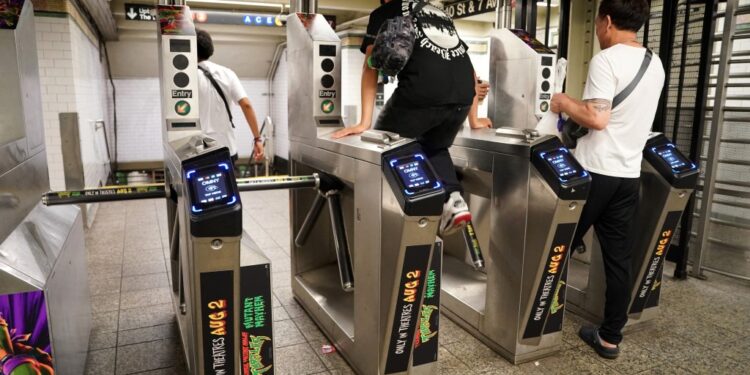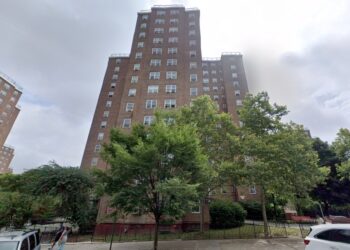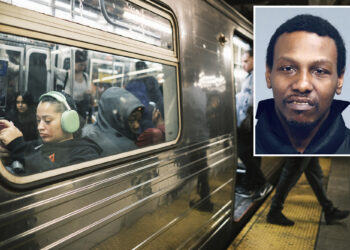Stunning new numbers from the NYPD make a powerful case for a full-bore return to Broken Windows policing: Nearly half of city fare-evaders arrested this year had open warrants for other crimes, including at least one murder, as The Post has reported.
Many of those warrants were for crimes like weapon possession, felony assault and drugs, and more than 200 of the farebeaters were carrying deadly weapons, including 13 guns and over 200 knives, at the time of their arrest.
You read that right: Of the 2,502 people cuffed for not paying for rides this year, 1,136 — or just over 45% — were wanted by cops, and nearly 10% were caught carrying deadly weapons.
There’s a clear lesson here: Catch criminals committing small-time crimes, and it’ll help you round up the real bad guys in the process.
That’s a big part of the idea behind Broken Windows policing, which focuses on quality-of-life violations and “low-level” crimes (e.g., farebeating) to prevent more serious crimes (e.g., murder) down the road.
The idea is that “routine” fare-evasion enforcement is “a way to ferret out more serious misconduct,” says John Jay College of Criminal Justice professor and ex-cop Eugene O’Donnell.

In many of the high-profile subway and bus felonies, cameras show the suspects having entered the transit system without paying.
Claude White, a homeless man accused of fatally stabbing another man on the 4 train, was caught just days later turnstile-jumping in Harlem wearing blood-stained pants.
Broken Windows policing also sends a vital message that there are consequences for even small crimes, so don’t even think about bigger ones.
It also improves local quality of life, by cracking down on litterers, vandalizers, tresspassers, shoplifters and others.
Alas, in the years before Mayor Eric Adams took office, city officials rolled back the practice, bowing to ludicrous claims by progressives that it was somehow racist.
Mayor Bill de Blasio and the City Council decriminalized a host of low-level offenses, and district attorneys, starting with Manhattan DA Cy Vance, vowed not prosecute most farebeaters.
The result: Both low- and high-level crime soared. More bad guys got away. And quality of life suffered.
Manhattan Institute crime expert Rafael Mangual notes that when rule-breaking and greater public disorder are allowed to grow, “it heightens our sense of awareness and fear of crime.”
New police boss Edwin Caban should heed the lessons and push hard to restore this strategy.
He’ll need backing from Adams (and others), but if he gets it, the payback — less crime of every kind — will be well worth it.
New Yorkers must demand a return to “broken windows” policing so that crime and disorder can be brought back under control once again.



























